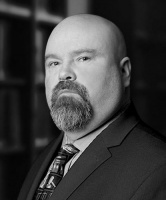Hometown RICO Act Lawyer, Illinois
Sponsored Law Firm
-
 x
x

Click For More Info:
-
The Law Offices of Richard L. Cooper, P.A.
848 Brickell Avenue Suite 800 Miami, FL 33131» view mapDWI/DUI, Drug Trafficking, Felony Nationally Ranked Top 40 Under 40
With Richard L. Cooper you can expect a trusted confidant who will work diligently to fully understand your case and determine a road map to help you regain control of your life.
800-756-2781
Not enough matches for Hometown RICO Act lawyer.
Below are all Hometown Criminal lawyers.
Gregory Raymond LaPapa
✓ VERIFIEDAs a longtime resident in Chicago, IL, Attorney Gregory R. LaPapa is proud of the roots he has in the community and honored to use his skills to help ... (more)
Joseph J. McNerney
✓ VERIFIEDWhen you’re embroiled in a legal battle involving a criminal case or traffic violations, make sure you’re effectively protected against severe con... (more)
Christopher Matt Robert Wright
✓ VERIFIEDChristopher has been instrumental in facilitating positive outcomes for criminal and civil cases. With half a decade of industry experience, Christoph... (more)
James Anthony Podgorny
James A. Podgorny is a sole practicing attorney, which means he will be the only attorney you will deal with at the firm. You will not be shuffled amo... (more)
FREE CONSULTATION
CONTACTRouhy Shalabi
FREE CONSULTATION
CONTACT
 Richard L. Cooper Miami, FL
Richard L. Cooper Miami, FL AboutMiami Attorney at Law
AboutMiami Attorney at Law ServicesCriminal Defense
ServicesCriminal Defense




